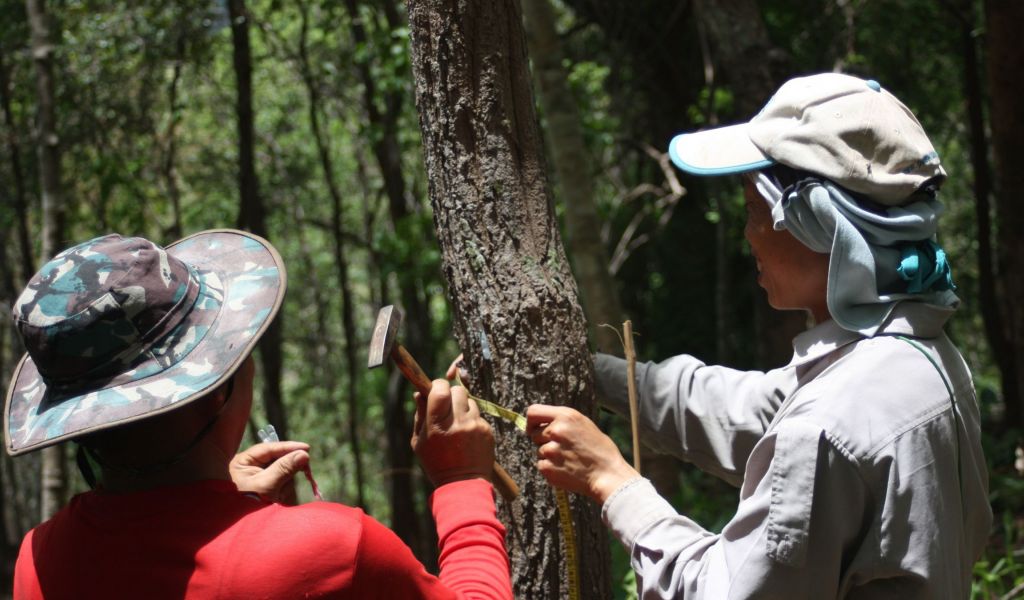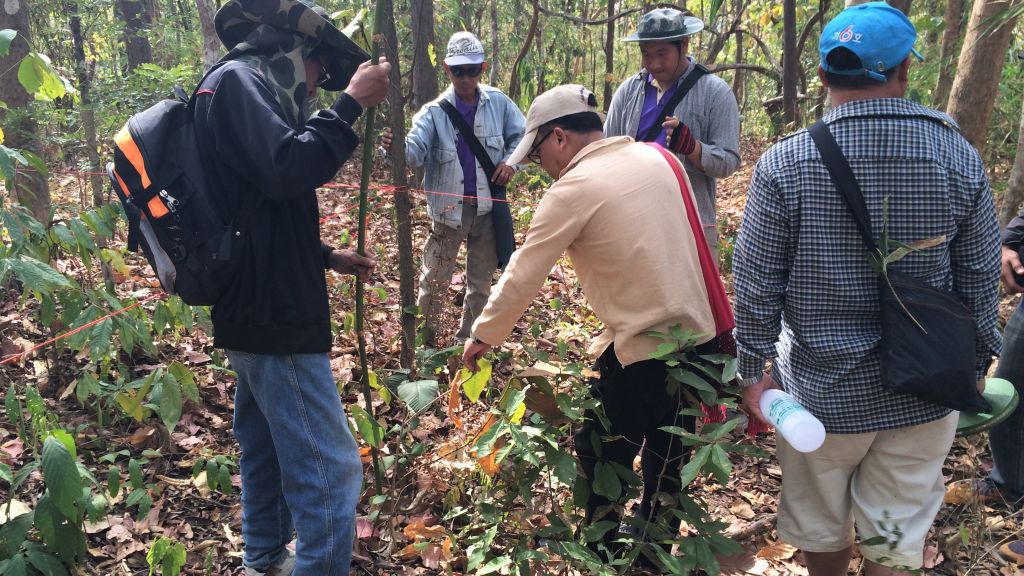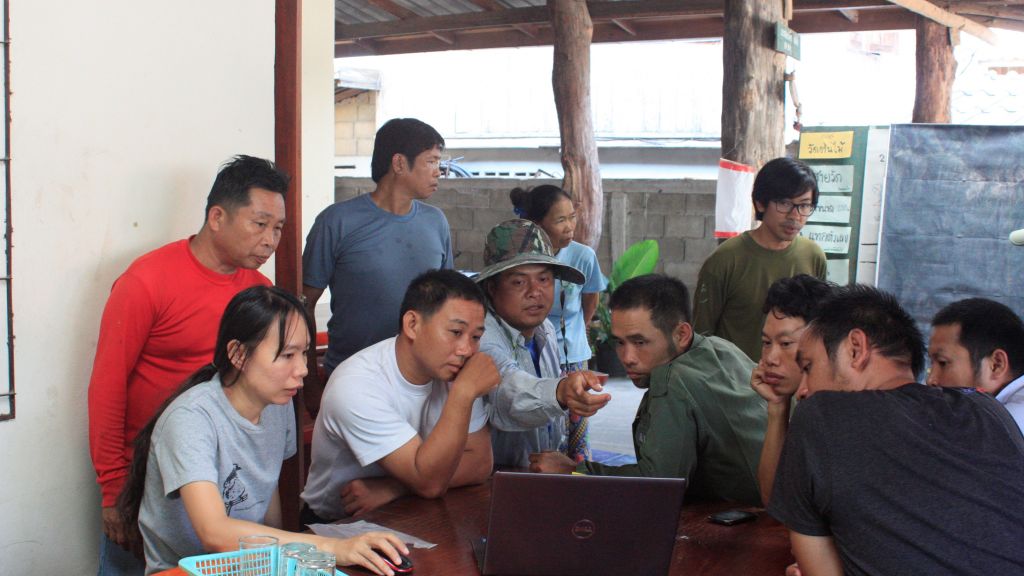Knowledge is Power: Protecting Forests with Carbon Assessments and Open Data

Carbon assessments in Northern Thailand have proved instrumental to communities advocating for the protection of their forests. Communities in Chiang Khong district have been under pressure to capitulate to the incursions of a planned Special Economic Zone that would cover their community forest.
While the forest was full of resources and culturally significant to people living in and around it, the community struggled to articulate the value of their forest in terms that would be understood to outsiders. “[Communities could] only see the traditional value of the forest in terms of the medicinal plants or wood that can be used, we can now highlight the value to people outside of the community”, says Sayan Khanmueng from Living River Association (LRA).
Policy implementers should have a complete picture of the value of natural resources and landscapes to local people if they want to implement policy that offers beneficial outcomes for all the stakeholders in forested landscapes.
As outsiders, it may be difficult for external agencies to appreciate the diversity of economic and cultural benefits that communities derive from forests. This is certainly understandable and warrants a new approach to community engagement on forests and the benefits they offer.
Forest ecosystems provide services for people on both local and global scales. The most commonly recognized ecosystem service is the role that forests play in carbon sequestration, with REDD+ (Reducing Emissions from Deforestation and Degradation) as an international mechanism designed by the international community intended to maintain and enhance this service.
New tools such as Global Forest Watch and SERVIR-Mekong’s EcoDash, allow for greater appreciation of forests and biomass. While these open source tools provide global and regional insights into forest resources and services, they do not always lead to local empowerment.

RECOFTC has been working with communities in Chiang Khong District in an effort to help communities highlight the value of forests to policy makers and external agencies, and to empower communities with scientific knowledge of their forests. The aim of this capacity development is not to undermine national level carbon accounting or monitoring, but rather to empower local communities to understand carbon within the context of broader natural resource management (NRM).
So far RECOFTC has trained eight villages on measuring the carbon content of their trees. The method involved measuring the circumference of trees and then inputting the data into software which calculated the carbon content of their forests.
The information was used in three ways. Firstly, it was used for internal awareness raising about the potential value of the communities’ forests beyond the immediate livelihood products – wood, mushrooms, fruit. The forests have value in terms of carbon sequestration, and potentially offer economic value in carbon credits. Secondly, the information has been fed into the communities’ natural resource management plans. Finally, the information was used to negotiate with local authorities to protect the forest from becoming a Special Economic Zone (SEZ).

Sayan Khanmueng confirms that “the data has been used for public awareness, we can show how much carbon is stored, and we can show the value of trees in terms of how much oxygen they produce.”
The experience in the Ing Watershed highlights the power of knowledge and the open data movement. The community now understands the importance of forest mapping, inventories and scientific knowledge in advocating for forest protection and for the maintenance of community livelihoods. Moreover, the information they have collected in the process has already had beneficial impacts for the community in serving as a negotiation tool and in informing natural resource management plans.

